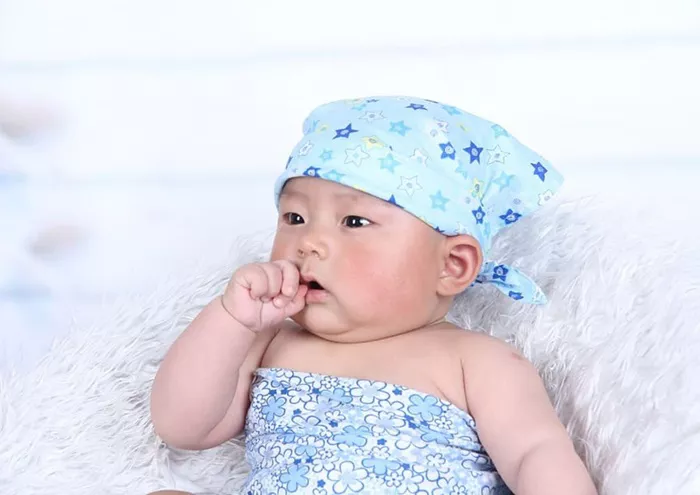Hiccups are common in newborns, especially after breastfeeding. They occur due to the immaturity of the baby’s digestive system and are usually harmless. However, they can be bothersome for both the baby and parents. Here are effective ways to help stop newborn hiccups after breastfeeding:
Burp Your Baby Properly:
Positioning: Hold your baby upright against your chest or over your shoulder.
Gentle Patting: Pat or rub your baby’s back gently to encourage burping.
Duration: Continue burping for several minutes until your baby releases gas.
Adjust Feeding Techniques:
Slow Feeding:
Ensure your baby feeds slowly and pauses to swallow properly.
Avoid Overfeeding:
Stop feeding when your baby shows signs of being full.
Proper Latching:
Ensure a good latch during breastfeeding to minimize air intake.
Reduce Air Swallowing:
Feeding Position:
Keep your baby in an upright position while breastfeeding.
Nipple Selection:
Choose a nipple with a slower flow rate to reduce the intake of air.
Check for Tongue Tie:
Consult a lactation consultant if your baby has difficulty latching properly.
Use Pacifiers Wisely:
Timing:
Offer a pacifier after breastfeeding, as sucking can help relieve hiccups.
Hygiene:
Ensure the pacifier is clean and in good condition to avoid any infections.
Environment Considerations:
Quiet Feeding: Breastfeed your baby in a calm and quiet environment to reduce distractions.
Comfortable Temperature: Ensure your baby is not too warm or cold during feeding.
Gripe Water or Chamomile Tea:
Consultation: Discuss with your pediatrician before using gripe water or chamomile tea.
Dosage: Follow recommended dosages to avoid any adverse effects on your baby.
Avoid Overstimulation:
Stress Reduction: Keep interactions calm and soothing after feeding to avoid overstimulation.
Sleep Routine: Establish a consistent sleep routine to help regulate your baby’s feeding and hiccups.
Monitor Feeding Patterns:
Observation: Note any patterns or triggers that may cause hiccups after breastfeeding.
Feeding Journal: Keep a feeding journal to track feeding times, durations, and positions.
Medical Evaluation:
Persistent Hiccups:
Consult your pediatrician if hiccups persist or seem severe.
Underlying Issues:
Rule out any underlying medical conditions causing frequent hiccups.
Parental Relaxation:
Stress Reduction:
Stay calm and relaxed during feedings to help your baby feel secure.
Self-care:
Take breaks and seek support from family members or support groups if needed.
Implementing these strategies can help alleviate and prevent hiccups in your newborn after breastfeeding. Always consult your pediatrician for personalized advice and guidance tailored to your baby’s health needs.
Conclusion
Hiccups in newborns after breastfeeding are a common occurrence, often caused by the immaturity of their digestive systems. While usually harmless, persistent hiccups can be discomforting for babies and concerning for parents. By employing gentle feeding techniques, ensuring proper burping, and creating a calm feeding environment, you can effectively reduce and manage newborn hiccups. Remember, each baby is unique, so it’s essential to observe your baby’s feeding patterns and consult your pediatrician for personalized advice if hiccups persist or if you have any concerns. With patience and attention to your baby’s needs, you can help them feed comfortably and minimize post-feeding hiccups.
FAQs
Why does my breastfed baby hiccup after every feeding?
Hiccups in newborns can be attributed to several factors related to their developing bodies:
Immature Digestive System: Newborns’ digestive systems are still developing and can sometimes spasm, leading to hiccups.
Swallowing Air: During breastfeeding, babies might swallow air along with milk, especially if they latch improperly or feed too eagerly.
Rapid Feeding: Babies who feed quickly or vigorously may also be prone to hiccups afterward as their bodies work to process the milk and air swallowed during feeding.
Do hiccups mean the baby is full?
Hiccups themselves are not a reliable indicator of whether a baby is full. Signs of satiety in a newborn include:
Slowing down or stopping sucking: Babies often slow down or stop sucking when they’re full or satisfied.
Releasing the breast or bottle: Letting go of the nipple or bottle nipple can indicate that the baby is no longer hungry.
Relaxed demeanor: A content baby tends to appear relaxed, with open hands and a calm facial expression.
Should you keep feeding a newborn with hiccups?
It’s generally safe to continue feeding a newborn if they have hiccups and are showing signs of hunger. However, if hiccups seem bothersome or frequent, you can try the following:
Burping: Pause feeding to burp your baby gently, as this can help release any trapped air that may be causing hiccups.
Comfort Break: Take a brief break to allow the hiccups to settle before resuming feeding.
Adjust Feeding Position: Ensure your baby is latched properly and feeding at a comfortable pace to minimize air swallowing.
Is it okay to lay the baby down with hiccups?
Yes, it’s generally safe to lay your baby down when they have hiccups, as long as they are comfortable and supervised. Some babies may find lying down soothing and may even fall asleep during or after hiccups. If your baby appears uncomfortable, you can try holding them upright for a moment or assisting them in burping before laying them down.


